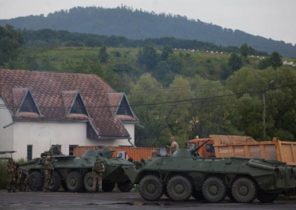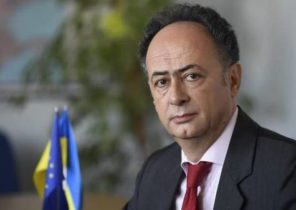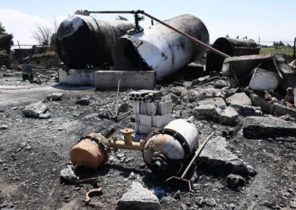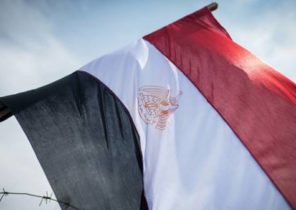
It has been over a month since the announcement of the largest since 1990-ies privatization deal in Russia — the sale of 19.5% of shares of oil giants Rosneft, but open data is still not allow us to understand who bought this share.
The stake was sold for 10.2 billion euros to a consortium of investors that included the Qatar investment Fund, Qatar Investment Authority (QIA) and the international trader Glencore, based in Switzerland.
Manifesting a deal during a televised meeting with the head of “Rosneft” Igor Sechin on December 7, Russian President Vladimir Putin was proud: it symbolized the faith of foreign investors in Russia despite financial sanctions that are directed including against the Russian oil gasgiant.
“This is the largest privatization transaction in the oil and gas sector in the world for the expiring 2016,” — said Putin.
The deal was also the largest in Russia, the sale of state property to private investors since the beginning of the post-Soviet period, when supporters of President Boris Yeltsin suddenly became billionaires, gaining control of state assets.
However, important details of the transaction were not publicized, they cannot be defined solely on the basis of public information. In addition, they come into conflict with the officially disclosed the parity scheme of ownership sold shares Glencore and Qatar.
Glencore announced on 10 December that, by investing only € 300 million, or less than 3% of the total amount of the transaction, acquired an economic interest of only 0,54%, “Rosneft”.
In addition, based on publicly available information, it is known that the scheme of possession of the package includes a company registered in the Cayman Islands, whose beneficiaries can not be determined.
Italian Bank Intesa Sanpaolo gave a loan to a Singapore company for the financing of the transaction is 5.2 billion euros that Qatar has invested 2.5 billion euros. But still no explanation of who financed the remainder — nearly a quarter of the amount of the transaction.
“The main issue in respect of this transaction remains is: who is the true purchaser of 19.5% stake in Rosneft?” — wrote last week in his blog, the former Deputy Chairman of Russian Central Bank Sergey Aleksashenko.
Glencore did not comment on the identity of the company in the Cayman Islands and did not provide details, how is the possession of a 19.5 per cent stake in Rosneft. The Qatari Fund said it would not comment on the deal, but confirmed that was in it.
“Rosneft” refused to answer questions from Reuters, including queries about the structure of ownership of the sold shares of the company in the Cayman Islands and also on the unsolved parts in the sources of funding. The Kremlin also did not respond to a request from Reuters about the details of the transaction.
Russian nesting doll
Privatization of “Rosneft”, as well as many other large deals going on the type of intermediary the scheme, which is compared with the nesting dolls, traditional wooden toy in the form of a painted doll, inside which are similar to her smaller dolls, inserted one into another.
The schema owning package of “Rosneft” leads to the British “daughter” Glencore and the company, whose address matches the address of the Qatari investment Fund, but also to the firm registered in the Cayman Islands, which is not required to disclose their owners.
Recently privatized a 19.5 per cent stake in Rosneft owns Singapore structure QHG Shares owned by registered in London the limited liability company QHG Investments, which, in turn, two owners, including limited liability company, registered in London December 5 — QHG Holding.
One of the partners QHG Holding company QHG Cayman Limited, registered at the same address in the Cayman Islands and international law firm Walkers. Managing partner at Walkers in London Jack Boldrin told Reuters that the company could not confirm whether any of the companies by their client, refusing further comment.
The use of offshore companies is not an indication of misconduct, but this makes it impossible on the basis of public information to determine the owner.
A Singaporean company is also a borrower of 5.2 billion euros at Intesa and QHG Holdings, the London society, a firm in the Cayman Islands, has acted as a guarantor of this loan.
Banking experts say that the Italian Bank in accordance with the rule “know your customer” was to identify the affiliation of the borrower.
Regulators were supposed to conduct a thorough review of the transaction due to its size and the need for compliance with the terms of the sanctions imposed against Russia.
Reuters asked Intesa, did the Bank, who are the ultimate beneficiaries of the offshore company Cayman QHG. The Bank said it does not comment on details of transactions for their clients.
“We wish to state that the funding was committed in strict compliance with the standards in the framework of the sanctions regimes. The Italian authorities have not found anything that might require a ban of this transaction.”
Italian Central Bank which is the banking regulator in Italy, declined to comment.
The mystery of financing
Not having solved the mystery about the new owners of the shares in Rosneft, it is impossible to understand where they got the money.
Qatar has never publicly stated how much he invested in the purchase and what portion of the package bought, while Rosneft and Glencore reported that the Qatari Fund has paid 2.5 billion euros.
Given the money Glencore — 300 million Euro and Intesa loan of 5.2 billion euros, the difference remains at 2.2 billion euros. Glencore reported that the money came from an unnamed banks, including Russian, without specifying details. Qatar and Rosneft refused to comment further.
The purpose of privatization in Russia — the attraction of foreign investment to patch holes in the state budget in conditions of low oil prices and Western sanctions.
Putin has banned Russian state-owned banks to participate in financing of privatization transactions, since it is contrary to the idea of attracting foreign money. However, public information from Singapore shows that in December, Treasury has received the total amount for the sold package of “Rosneft” from the second largest state Bank of Russia — VTB, which has provided Singapore QHG Shares bridge loan in the amount of 10.2 billion euros.
VTB in December held in pledge of shares of “Rosneft” to until December 22, is not transmitted, this mortgage and the rights under the loan head structure “Rosneft” — state “Rosneftegaz”, which, in turn, in early January moved the papers to the Singapore firm, when Intesa announced the granting of the loan.
VTB and “Rosneft” reported that the Russian state Bank involved in the transaction to reduce the volatility of the ruble on the market, because to complete it would be necessary to convert from 10.2 billion Euro received from abroad. However, VTB did not disclose whether the loan is fully repaid and by whom.
In search of a buyer
“Rosneft” — the largest in the world in the production of traded among oil companies and along with the gas export monopoly of Russia — Gazprom is one of Russia’s largest state assets.
Even in the best of times without the additional risk caused by the sanctions, few foreign investors with sufficient financial resources wanted to buy a large stake in the company.
The largest owner trader Glencore, one of the main buyers of oil “Rosneft”, is the 335-billion Qatar sovereign Fund QIA.
Russia and Qatar are on opposite sides in the Syrian conflict, but as two of the world’s leading gas exporters can find space for cooperation, as well as a reason to bury some of the political disputes in the middle East.
“The idea to attract Qatar, which likes to invest in the energy sector. Qatar saw the benefits of the transaction and benefit from building relationships with Russia’s political role in the middle East will only grow,” said one source who was involved in negotiating the purchase of shares of “Rosneft” consortium.
According to the source close to the Board of Directors of “Rosneft”, the deal was a surprise to the company’s shareholders, including British BP, which owns a 19.75% of Russia’s largest oil company. The Board of Directors found out about the deal personally by Sechin after a few hours after the recording of his meeting with Putin.
The representative of BP told Reuters that the issues relating to the activities of the Board of Directors and participation are confidential.
Sources in the Russian government also said that the deal was a surprise to them.
“Sechin did everything myself — the government was not involved,” said one of the government sources.
Press Secretary of Prime Minister Dmitry Medvedev Natalya Timakova said that all the documents and necessary procedures that had to take place in the course of privatization of 19.5% of Rosneft shares, was prepared and executed in time.







